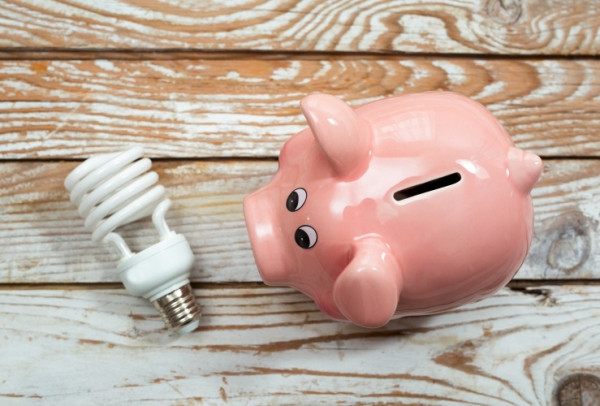Switch to the lowest tariffs
Ask your energy provider about the cheapest tariffs available. Many consumers wrongly assume they have to wait a year before they switch tariffs; in reality this could be done every few weeks. However, be sure you don’t get stung by large exit fees.
Find out about incentives
Look out for incentives or freebies associated with using a switching service. Cashback and shopping vouchers are common deal-sweeteners.
Dual fuel is not always the cheapest
Don't become too reliant on 'dual fuel' energy tariffs – they may not always be cheaper than separate gas and electricity bills.
Avoid estimated bills
Bills based in estimated usage could mean you pay more for your electricity than you use. You should regularly submit readings yourself, since overpayments may not always be refunded.
Get overpaid sums back from energy suppliers
According to MoneySavingExpert.com, 3.5m Britons could be owed money by a former energy provider. Many of these suppliers don’t refund credit amounts unless they are pursued by customers. Regulator Ofgem "expects suppliers to do more" to refund overpaid sums.
Prudence in the kitchen
According to the Energy Savings Trust, you can save almost £50 annually by changing the way you use your kitchen.
By filling up a bowl to do your dish washing rather than running the tap you could save up to £30 each year. Only using the water you need when boiling a kettle could pocket you £7 a year, while using the washing machine just once a week could save £5 (and another £7 if your water use is metered).
Standby wastage
While big ticket items like widescreen TVs and laptops are often assumed to be the biggest energy consumers, smaller devices also use a lot of energy.
Leaving items such as mobile devices and coffee machines on standby unnecessarily can waste substantial amounts of electricity each month. While it's impossible to come up with a precise figure, the Energy Savings Trust estimates that each year households waste around £30 by keeping appliances on standby. Consider buying a standby saver which enables you to turn off all appliances in one go. However, bear in mind that some TV systems may need to remain plugged in if programmes are set to be recorded.
Turn off lights when not in use
This is a much-touted energy saving tip, but one that could save around £13 a year. Contrary to some information, the small surge of energy required to turn a lightbulb on does not mean it is cost-effective to leave lights on rather than switching them off when not in use. Even if you leave a room for a half a minute, you will save electricity by switching the light off.
LEDs and energy saving lightbulbs
Cheaper-to-run LED bulbs are now bright enough to match costlier-to-use halogens. In an average household it would set you back around £100 to replace old-style bulbs with energy saving lightbulbs and halogens with LEDs – but would result in annual savings of about £35.
Radiators
By fitting reflector panels behind your radiators you can reflect up to 95 per cent of heat energy radiated from the rear of your radiator back into the room.
Smart radiator valves can also be fitted to control when your radiators come on and turn off, while radiator boosters absorb heat from radiators and circulate it around the given room 50 per cent more efficiently.
Curtains
Close your curtains after sunset to help keep heat inside your home. Consider investing in heavier or insulated curtains in colder months.
Dishwashers
Use economy settings to cut your electricity consumption. Some dishwashers use less energy than hand washing.
Cooking
When using your oven try not to open the door as this uses more electricity. Use pans of the appropriate size for the food being cooked and use energy-efficient stacked steamers if you have them.
Consider preparing more food with your microwave, since it is cheaper to run. Creating more meals that do not require cooking or heating will also cut your bill.
Fridges and freezers
Defrost your freezer regularly to make it run more efficiently. Try to keep your fridge stocked since food acts as an insulator, meaning your fridge will attain the desired temperature more quickly, consuming less energy.
Source: www.startrescue.co.uk



